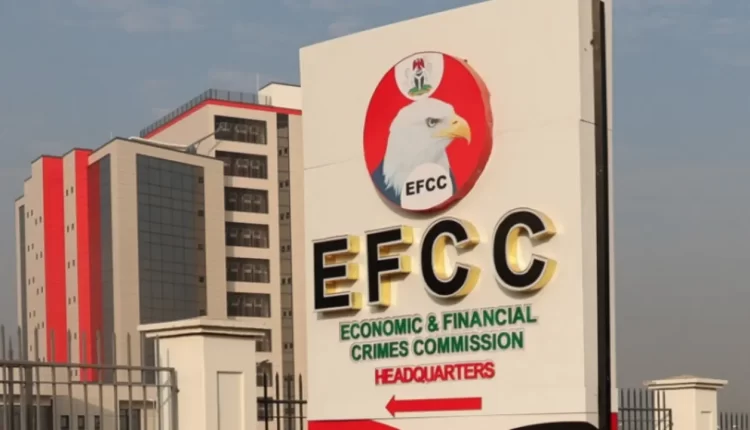
By attempting to prosecute Yahaya Bello, former Governor of Kogi State, the Economic and Financial Crimes Commission (EFCC) says it has not disobeyed the State’s Court order.
The anti-graft agency has accused the former governor of being involved in the laundering of N80.2 billion belonging to the Kogi Government.
Recall that last week, April 17, operatives of the commission barricaded Bello’s Abuja residence.
Amid the crackdown, a Kogi High Court delivered judgment in a fundamental rights enforcement suit restraining the commission from “harassing, threatening to arrest or detaining” the former Governor.
The EFCC, on the same day obtained a warrant of arrest against Bello from a Federal High Court in Abuja.
The former governor was later declared wanted by the anti-graft agency after failing to show up for his scheduled arraignment in court.
READ ALSO: Yahaya Bello Not Hiding In Our Family House – Ex-Kogi Gov Audu’s Family
The development thus far has sparked a debate about whether or not the Commission is in breach of the order of Kogi High Court .
Reacting in a Monday statement via Wilson Uwujaren, EFCC’s spokesperson, the Commission said while Bello sought refuge in a fundamental rights enforcement action through an order granted by the Kogi court, it does not nullify the directive made by the federal high court for the arrest of the former governor.
“The enrolled Order of the Kogi State High Court only granted an order to enforce Bello’s right to personal liberty and freedom of movement, it didn’t preclude the Federal High Court ‘to make any Order as it may deem just in the determination of the rights of the Applicant and the Respondent as may be submitted to her for consideration and determination.
“The Order made by the Federal High Court for the arrest of Mr. Yahaya Bello for the purpose of his arraignment is not in conflict with the Order of the Kogi State High Court.
“The case before the Federal High Court is a criminal charge which is different from the fundamental rights enforcement action that is the subject of an appeal,” the statement read.
According to him, the EFCC had a track record in the prosecution of politically exposed persons and would continue to exercise its mandate in the overall interest of the nation.
He urged Bello to turn himself in and answer to the charges preferred against him by the Commission.




